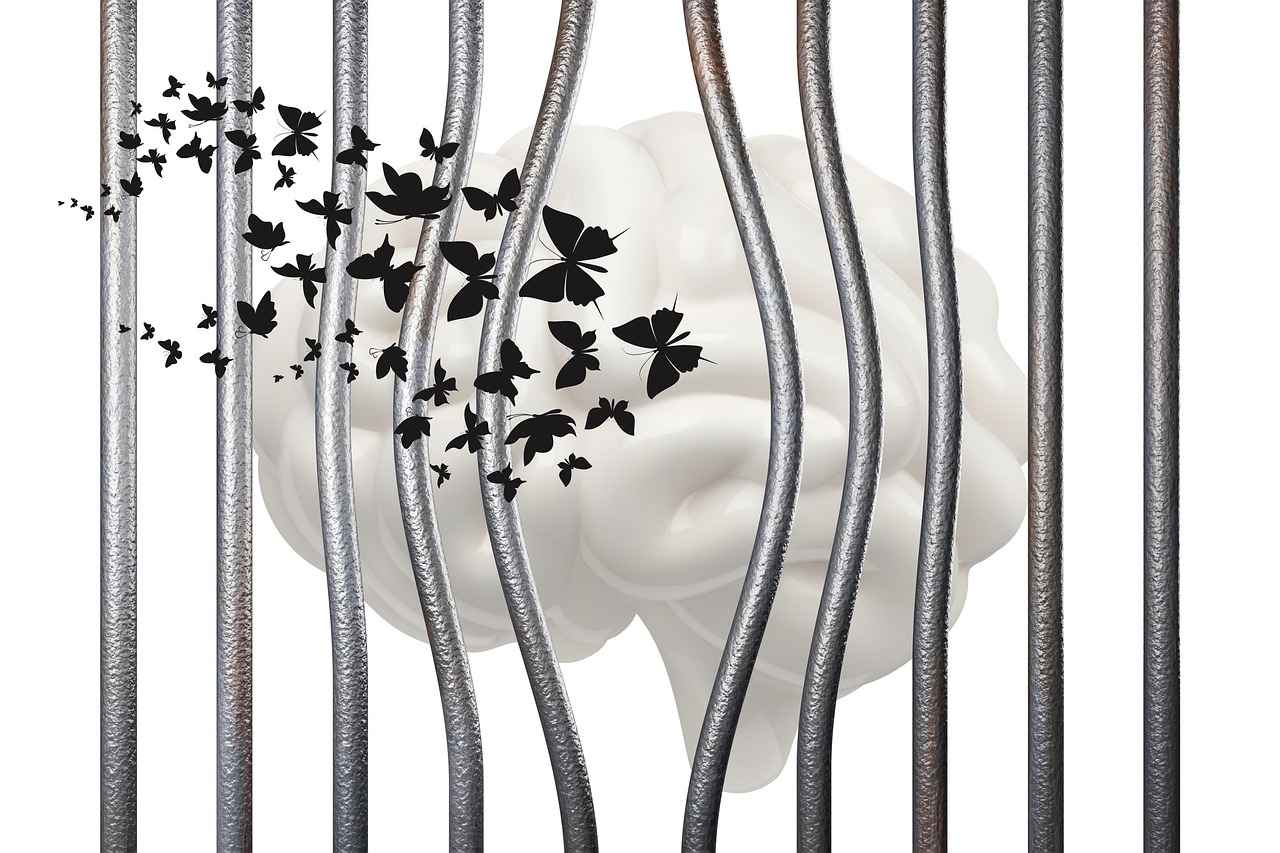Men’s Mental Health Month 2025 serves as a crucial reminder of the unique mental health challenges faced by men. This annual observance not only aims to raise awareness but also encourages individuals to actively participate in discussions and initiatives that support men’s mental well-being. In 2025, it is essential to engage in meaningful ways to foster a supportive environment for men to discuss their mental health openly.
Men’s Mental Health Month is more than just a designated time on the calendar; it is a movement aimed at dismantling the stigma surrounding mental health issues that affect men. Traditionally, societal norms have perpetuated the notion that men should be stoic and emotionally resilient, often leading to underreporting of mental health struggles. This month serves as a platform for education, advocacy, and the promotion of resources that can help men navigate their mental health challenges.
Understanding the importance of men’s mental health is vital for several reasons. First, men are statistically less likely to seek help for mental health issues, often due to societal expectations that equate vulnerability with weakness. Moreover, men can experience a range of mental health issues, including depression, anxiety, and substance abuse. These challenges can be exacerbated by societal norms that discourage emotional expression and open dialogue about mental well-being.
Getting involved in Men’s Mental Health Month can take many forms. Here are some practical ways to participate:
- Attend Events: Look for local workshops, seminars, or community gatherings focused on men’s mental health.
- Use Social Media: Share information, personal stories, or resources related to men’s mental health on platforms like Twitter, Instagram, or Facebook.
- Volunteer: Offer your time to organizations that support men’s mental health initiatives.
- Start Conversations: Encourage discussions about mental health among friends and family to normalize the topic.
Numerous resources exist to support men’s mental health. These include:
| Resource Type | Description |
|---|---|
| Hotlines | Confidential support for men in crisis, providing immediate assistance and guidance. |
| Counseling Services | Professional help offered through individual or group therapy sessions. |
| Online Platforms | Websites and forums dedicated to mental health education and support networks. |
Support from friends and family is crucial in promoting men’s mental health. Here are some ways to provide that support:
- Be Available: Make time to listen without judgment.
- Encourage Professional Help: Suggest seeking help from a mental health professional if needed.
- Check In Regularly: Simple messages or calls can make a significant difference in someone’s day.
The long-term goals of Men’s Mental Health Month extend beyond raising awareness. They include:
- Reducing stigma associated with mental health issues among men.
- Increasing accessibility to mental health resources.
- Encouraging ongoing conversations about mental well-being.
In conclusion, Men’s Mental Health Month is a vital opportunity to foster understanding and support for men’s mental health. By engaging in various activities, advocating for resources, and encouraging open dialogue, we can create a lasting impact on the mental well-being of men in our communities. Remember, every action counts, and together we can make a difference.

What Is Men’s Mental Health Month?
Men’s Mental Health Month is a vital observance that takes place each June, dedicated to shining a light on the unique mental health challenges faced by men. This month serves as a platform for raising awareness, fostering open dialogue, and encouraging men to seek help without fear of stigma. The observance aims to create a supportive environment where men can discuss their mental health struggles, find resources, and learn about the importance of mental well-being.
Men’s Mental Health Month is significant because it addresses the often-overlooked mental health issues that disproportionately affect men. Statistically, men are less likely to seek help for mental health problems due to societal norms that equate masculinity with emotional stoicism. This month seeks to challenge those norms and promote a more open approach to mental health.
During this month, various organizations and communities come together to host events, workshops, and campaigns aimed at educating the public about the importance of mental health for men. These initiatives encourage men to share their experiences and support one another, fostering a sense of community and understanding.
Participating in Men’s Mental Health Month can take many forms. Here are some practical ways to get involved:
- Attend Events: Look for local events such as workshops, seminars, or support groups focused on men’s mental health. These gatherings provide valuable information and create a sense of community.
- Share on Social Media: Use your social media platforms to share posts, articles, or personal stories related to men’s mental health. This can help raise awareness and encourage others to join the conversation.
- Start Conversations: Talk to friends, family, or colleagues about mental health. Creating an open dialogue can help reduce stigma and encourage those who may be struggling to seek help.
- Support Mental Health Organizations: Consider donating your time or resources to organizations dedicated to men’s mental health. Volunteering can make a significant impact in your community.
Numerous resources exist to support men’s mental health. Here are some essential services:
| Resource Type | Description |
|---|---|
| Hotlines | Confidential support and crisis intervention services available 24/7. |
| Counseling Services | Professional therapy options for individuals seeking help with mental health issues. |
| Online Platforms | Websites and forums dedicated to mental health education and support. |
These resources are crucial for providing support to men who may be facing mental health challenges. By utilizing these services, individuals can find the help they need and connect with others who understand their struggles.
Friends and family play a vital role in supporting men’s mental health. Here are some ways to offer support:
- Listen Actively: Being a good listener can help men feel heard and understood. Encourage them to share their feelings without judgment.
- Check In Regularly: Regularly checking in on loved ones can show that you care and are there for them, making it easier for them to open up about their mental health.
- Encourage Professional Help: If someone is struggling, gently encourage them to seek professional help. Offer to assist them in finding resources or accompanying them to appointments.
In conclusion, Men’s Mental Health Month is an essential opportunity to raise awareness, reduce stigma, and promote the importance of mental health among men. Engaging in various activities, supporting each other, and advocating for necessary resources can create a lasting impact on the mental well-being of men in our communities.

Why Is Men’s Mental Health Important?
Understanding the significance of men’s mental health is crucial, as men often face societal pressures that can lead to mental health challenges and stigmas surrounding seeking help. The conversation around men’s mental health is gaining momentum, yet many still struggle in silence due to traditional notions of masculinity that equate vulnerability with weakness. This article delves into why men’s mental health is essential and how societal norms contribute to mental health struggles.
Men’s mental health is a vital aspect of overall well-being that deserves attention and understanding. Statistics indicate that men are less likely to seek help for mental health issues compared to women, which can lead to tragic consequences, including higher rates of suicide. According to the World Health Organization, men are three times more likely to die by suicide than women, highlighting the urgent need for awareness and intervention.
One significant factor contributing to this disparity is the societal expectation for men to be stoic and self-reliant. Many men grow up internalizing messages that discourage emotional expression, leading to a harmful cycle where they feel they must “tough it out” rather than seek support. This pressure can exacerbate feelings of isolation and hopelessness, making it even more challenging for men to reach out for help.
Moreover, mental health issues such as depression, anxiety, and substance abuse are prevalent among men, often intensified by these societal norms. For instance, men might experience depression but may mask their symptoms with anger or irritability, making it harder for friends and family to recognize their struggles. Understanding these common mental health issues allows us to create a more supportive environment for men to seek help.
It’s also essential to recognize that men’s mental health is not just a personal issue but a societal one. When men are struggling, it affects their families, workplaces, and communities. Promoting mental health awareness among men can lead to healthier relationships, increased productivity, and a more supportive community overall. By fostering open conversations around men’s mental health, we can challenge the stigma and create safe spaces for men to express their emotions.
| Common Mental Health Issues in Men | Possible Signs |
|---|---|
| Depression | Withdrawal from social activities, irritability, changes in sleep patterns |
| Anxiety | Restlessness, excessive worry, physical symptoms like heart palpitations |
| Substance Abuse | Increased use of alcohol or drugs, neglecting responsibilities, relationship issues |
In conclusion, understanding the importance of men’s mental health is vital for fostering a healthier society. By challenging the stigmas and societal norms that prevent men from seeking help, we can create an environment where mental health is prioritized, leading to improved outcomes for men and their communities. It is crucial that we continue to advocate for men’s mental health, ensuring that every man knows that it is okay to seek help and that support is available.
What Are Common Mental Health Issues Among Men?
Understanding the mental health challenges faced by men is crucial in promoting overall well-being and fostering a supportive environment. Men often grapple with various mental health issues, including depression, anxiety, and substance abuse. These challenges are frequently compounded by societal expectations and norms regarding masculinity.
Men are not immune to mental health struggles, and it is essential to recognize the specific issues they face. Depression is one of the most prevalent mental health disorders among men, often characterized by persistent sadness, loss of interest in activities, and feelings of hopelessness. Men may express their depression differently than women, sometimes manifesting as irritability or anger rather than sadness. This can lead to a lack of recognition of their condition, further exacerbating the problem.
Anxiety is another significant issue, affecting many men. Anxiety disorders can manifest as excessive worry, restlessness, or physical symptoms like rapid heart rate. Men often feel pressured to maintain a façade of strength, which can prevent them from addressing their anxiety openly. This internal struggle can lead to increased feelings of isolation and distress.
Furthermore, substance abuse is a common coping mechanism for men dealing with mental health issues. Alcohol and drugs may be used as a way to escape feelings of depression or anxiety. Unfortunately, substance abuse can lead to a vicious cycle, worsening mental health conditions while creating additional problems in personal and professional lives.
Societal expectations often dictate how men should behave, encouraging them to be stoic and self-reliant. These norms can discourage men from expressing vulnerability or seeking help when needed. The pressure to conform to traditional masculine ideals can result in emotional suppression. Many men feel they must “tough it out” rather than openly discuss their feelings, leading to untreated mental health issues.
Moreover, the stigma surrounding mental health can prevent men from reaching out for support. They may fear being perceived as weak or unmanly if they admit to struggling with their mental health. This stigma not only affects their willingness to seek help but also impacts how others perceive them, creating a cycle of silence and suffering.
Recognizing the signs of mental health issues in men is vital for early intervention. Common indicators include withdrawal from social activities, increased irritability, changes in sleep patterns, and difficulty concentrating. Men may also exhibit physical symptoms, such as unexplained aches and pains, which can often be linked to underlying mental health conditions.
It is essential for friends and family to be aware of these signs and encourage open conversations about mental health. Creating a supportive environment can help men feel more comfortable discussing their struggles and seeking help.
In summary, understanding the mental health issues that men face is crucial for fostering a supportive community. By recognizing the signs of depression, anxiety, and substance abuse, we can work together to break the stigma surrounding men’s mental health. Encouraging open conversations and providing resources can significantly improve the mental well-being of men in our society.
How Do Societal Norms Impact Men’s Mental Health?
Societal norms play a significant role in shaping the mental health landscape for men. From a young age, boys are often taught to embody characteristics such as strength, stoicism, and emotional restraint. These expectations can create a rigid framework that discourages vulnerability and openness, leading many men to suppress their emotions. This emotional suppression can result in various mental health challenges, including depression, anxiety, and even suicidal thoughts.
One of the most detrimental aspects of these societal norms is the stigma surrounding mental health issues. Many men feel pressured to conform to traditional masculine ideals, which often equate seeking help with weakness. This stigma can prevent men from reaching out for support when they need it the most. For instance, a man experiencing symptoms of depression may avoid seeking therapy due to fears of being perceived as “less of a man.” This avoidance can exacerbate feelings of isolation and helplessness, further deteriorating mental health.
Moreover, societal expectations often dictate how men should express their emotions. Anger is frequently seen as an acceptable emotion for men, while sadness or fear may be viewed as signs of weakness. This limited emotional vocabulary can lead to unhealthy coping mechanisms, such as substance abuse or aggression, which ultimately harm both the individual and those around them.
To illustrate, consider the case of a young man named Jake. Growing up, he was taught that expressing sadness was a sign of weakness. As he faced personal challenges, including the loss of a loved one, he felt compelled to “tough it out” rather than seek support from friends or family. Over time, this emotional suppression led to severe anxiety and depression, affecting his relationships and overall quality of life. Jake’s story is not unique; many men find themselves trapped in a cycle of emotional repression due to societal pressures.
Addressing these societal norms is crucial for improving men’s mental health. Initiatives aimed at redefining masculinity can help create a culture where vulnerability is not only accepted but celebrated. Encouraging open discussions about emotions and mental health can empower men to seek help without fear of judgment. Community programs, workshops, and campaigns that promote mental health awareness can significantly contribute to breaking down these harmful stereotypes.
In conclusion, societal norms have a profound impact on men’s mental health, often leading to emotional suppression and increased mental health struggles. By challenging these norms and fostering an environment that encourages vulnerability and openness, we can pave the way for healthier emotional expressions among men. It is essential for society to recognize that seeking help is a strength, not a weakness, and that addressing mental health issues is vital for overall well-being.
What Are the Signs of Mental Health Issues in Men?
Understanding mental health issues in men is crucial for fostering a supportive environment where they can seek help without fear of stigma. Mental health challenges can manifest in various ways, and recognizing the signs is the first step toward providing the necessary support. Men often face unique societal pressures, leading to emotional suppression and reluctance to seek help. By being aware of the signs of mental health issues, friends, family, and colleagues can play a significant role in early intervention and support.
Many men may exhibit different signs when struggling with mental health issues. Here are some common indicators:
- Withdrawal from Social Activities: One of the most noticeable signs is a withdrawal from friends, family, and social activities. Men may begin to isolate themselves, avoiding gatherings or events they once enjoyed.
- Irritability and Mood Swings: Increased irritability or frequent mood swings can signal underlying mental health issues. Men may find themselves reacting more intensely to minor inconveniences.
- Changes in Sleep Patterns: Sleep disturbances, whether insomnia or excessive sleeping, can be a significant indicator. Changes in sleep can affect overall mood and energy levels.
- Loss of Interest in Hobbies: A noticeable decline in interest or pleasure in activities that were once enjoyable can indicate depression or anxiety.
- Physical Symptoms: Men may experience unexplained physical symptoms such as headaches, stomach issues, or chronic pain, which can often be linked to stress and mental health struggles.
- Substance Abuse: Some men may turn to alcohol or drugs as a coping mechanism, which can further exacerbate mental health issues.
Recognizing these signs early can lead to timely intervention, which is essential for effective support. It is important to approach the situation with empathy and understanding, as many men may not openly express their feelings or seek help due to societal norms.
Friends and family members can play a vital role in identifying signs of mental health issues. Here are some practical ways to help:
- Open Communication: Encourage open dialogue about feelings and emotions. Create a safe space where men can express their thoughts without judgment.
- Regular Check-Ins: Make it a habit to check in regularly. Simple messages or calls can show support and make it easier for someone to open up about their struggles.
- Be Observant: Pay attention to changes in behavior, mood, or interests. If a loved one seems different, it might be time to ask how they’re feeling.
- Educate Yourself: Understanding mental health issues can help you recognize signs more effectively. Familiarize yourself with common symptoms and resources available for support.
By being proactive and attentive, friends and family can significantly impact the mental well-being of men in their lives. Early recognition and intervention can lead to better outcomes and encourage men to seek the help they need.
If you notice signs of mental health issues in a man you care about, approaching the situation with sensitivity is key. Here are some steps to consider:
- Start the Conversation: Approach the person gently, expressing your concern without being confrontational. Use “I” statements to convey your feelings, such as “I’ve noticed you seem a bit down lately.”
- Encourage Professional Help: Suggest seeking professional help if the signs persist. Offer to help them find resources or accompany them to appointments if they feel comfortable.
- Be Supportive: Let them know you are there for them. Sometimes, just knowing someone cares can make a significant difference.
In conclusion, recognizing the signs of mental health issues in men is essential for fostering a supportive environment. By being observant and proactive, friends and family can help men navigate their mental health challenges and encourage them to seek help when needed.
Why Is There a Stigma Around Men’s Mental Health?
Understanding the stigma surrounding men’s mental health is crucial in addressing the barriers that prevent men from seeking help. Traditional views of masculinity often dictate that men should be strong, stoic, and self-reliant, which can lead to a reluctance to express vulnerability. This cultural expectation creates a harmful narrative that equates emotional expression with weakness, resulting in many men suffering in silence.
The stigma surrounding men’s mental health is deeply rooted in societal norms and expectations. From a young age, boys are often taught to suppress their emotions and “tough it out” during difficult times. This conditioning can manifest in various ways:
- Fear of Judgment: Many men fear being judged or ridiculed if they admit to struggling with their mental health. This fear can be particularly pronounced in male-dominated environments where vulnerability is viewed as a weakness.
- Pressure to Conform: The pressure to conform to traditional masculine ideals can prevent men from seeking help. They may feel that admitting to mental health issues is incompatible with their identity as a man.
- Lack of Awareness: There is often a lack of awareness about mental health issues and the resources available for support. Many men may not recognize the signs of mental health challenges or know where to turn for help.
The impact of stigma on men’s mental health is profound. When men internalize the belief that they must be strong and self-sufficient, they may avoid seeking help even when they need it most. This can lead to:
- Increased Isolation: Men may isolate themselves, believing that they should handle their problems alone. This isolation can exacerbate feelings of depression and anxiety.
- Higher Rates of Suicide: The stigma surrounding men’s mental health is linked to higher suicide rates among men. Many men who struggle with mental health issues do not seek help, leading to tragic outcomes.
- Delayed Treatment: Men may delay seeking treatment until their mental health issues become severe, making recovery more difficult. Early intervention is crucial for effective treatment.
Addressing the stigma surrounding men’s mental health requires a collective effort. Here are some strategies that can help:
- Open Conversations: Encouraging open conversations about mental health can help normalize the topic. Men should feel safe discussing their feelings without fear of judgment.
- Education and Awareness: Increasing awareness about mental health issues and the importance of seeking help can empower men to take action. Educational campaigns can help dispel myths about mental health.
- Support Networks: Creating support networks where men can share their experiences and seek help can reduce feelings of isolation. Peer support groups can be particularly effective.
In conclusion, the stigma surrounding men’s mental health is a significant barrier that prevents many from seeking the help they need. By fostering open conversations, increasing awareness, and creating supportive environments, we can begin to dismantle these harmful stereotypes and encourage men to prioritize their mental well-being.

How Can You Get Involved in Men’s Mental Health Month?
Men’s Mental Health Month is an important initiative that encourages individuals to engage in conversations and activities surrounding men’s mental health. Getting involved in this observance can take many forms, allowing everyone to contribute to a cause that impacts many lives. In this article, we will explore various ways you can actively participate in Men’s Mental Health Month, helping to raise awareness and support for mental health issues that affect men.
Getting involved in Men’s Mental Health Month can be both rewarding and impactful. Here are several ways to participate:
- Participate in Local Events: Many communities organize events such as workshops, seminars, and awareness campaigns. Attending these events can help you learn more about men’s mental health issues and connect with others who share similar interests.
- Volunteer Your Time: Consider volunteering with local organizations that focus on mental health. Your time can be invaluable in helping them reach out to men in need of support.
- Spread Awareness on Social Media: Use your social media platforms to share information, personal stories, or resources related to men’s mental health. Engaging in conversations online can help reduce stigma and encourage others to seek help.
- Start a Discussion Group: Create a safe space for men to talk about their mental health. This can be as simple as organizing a coffee meet-up or an online chat group where participants feel comfortable sharing their experiences.
- Educate Yourself and Others: Take the time to read articles, watch videos, or attend webinars about men’s mental health. The more informed you are, the better equipped you will be to support others and advocate for mental health awareness.
- Support Mental Health Campaigns: Many organizations run campaigns during Men’s Mental Health Month. Supporting these initiatives through donations or participation can help fund important mental health resources and research.
Additionally, you can encourage your workplace to recognize Men’s Mental Health Month by implementing programs aimed at promoting mental wellness. This could include workshops, counseling services, or simply fostering an environment where employees feel safe discussing their mental health needs.
Your involvement in Men’s Mental Health Month is crucial for several reasons. Firstly, it helps to break the silence surrounding men’s mental health issues. Many men struggle in silence due to societal expectations and stigma, and your participation can encourage them to speak up and seek help. Secondly, raising awareness can lead to increased funding and resources for mental health services, ultimately benefiting those in need.
Moreover, by taking action, you set an example for your peers, showing that mental health is a priority and that it’s okay to seek help. Your efforts can inspire others to get involved, creating a ripple effect that promotes a culture of openness and support.
In conclusion, there are countless ways to get involved in Men’s Mental Health Month, from participating in local events to spreading awareness on social media. Every action counts, and by engaging in this vital cause, you contribute to a larger movement aimed at improving the mental health of men everywhere. Let’s work together to create a supportive environment where men feel empowered to discuss their mental health openly.
What Events Are Held During Men’s Mental Health Month?
Men’s Mental Health Month is an important initiative that aims to raise awareness and encourage discussions around mental health issues affecting men. Throughout this month, various events are organized to engage the community, promote mental health resources, and foster an environment where men feel comfortable discussing their mental well-being. This article explores the different types of events held during Men’s Mental Health Month and how they contribute to a greater understanding of men’s mental health.
During Men’s Mental Health Month, a range of events are held to cater to diverse audiences and promote mental health awareness. These events typically include:
- Workshops: Interactive sessions that provide practical tools and techniques for managing mental health. Workshops may focus on stress management, mindfulness practices, and coping strategies.
- Seminars: Educational talks led by mental health professionals that cover various topics related to men’s mental health, such as the impact of societal norms, recognizing mental health issues, and the importance of seeking help.
- Awareness Campaigns: Community-driven initiatives aimed at spreading knowledge about mental health resources and encouraging open conversations. These campaigns often utilize social media, local events, and partnerships with organizations to reach a wider audience.
- Support Groups: Safe spaces for men to share their experiences, challenges, and successes related to mental health. These groups foster a sense of community and provide peer support.
- Fitness Events: Activities such as charity runs, yoga classes, or sports tournaments that promote physical health while also emphasizing the connection between physical and mental well-being.
The events held during Men’s Mental Health Month play a crucial role in creating awareness and reducing stigma associated with mental health issues. By bringing people together in supportive environments, these events encourage men to speak openly about their struggles and seek help when needed. Here are some ways these events make a significant impact:
- Breaking Down Barriers: Events help dismantle the stigma surrounding men’s mental health by fostering open conversations. When men see others discussing their experiences, it normalizes the act of seeking help.
- Providing Resources: Workshops and seminars often provide attendees with valuable resources, such as contact information for mental health services, self-help materials, and coping strategies.
- Building Community: Support groups and community events create a sense of belonging among participants. This camaraderie can be vital for those feeling isolated in their struggles.
- Promoting Healthy Habits: Fitness events not only encourage physical activity but also highlight the importance of maintaining a healthy lifestyle as a means to improve mental health.
Getting involved in Men’s Mental Health Month events is a great way to support the cause and help others. Here are some suggestions:
- Participate in local events or workshops in your community.
- Share information about Men’s Mental Health Month on social media to raise awareness.
- Volunteer with organizations that focus on men’s mental health initiatives.
- Encourage friends and family to join you in attending events or discussions.
In conclusion, the events held during Men’s Mental Health Month are vital in promoting awareness, reducing stigma, and providing support for men facing mental health challenges. By participating in these events, individuals can contribute to a culture of openness and understanding, ultimately leading to better mental health outcomes for men in our communities.
How Can Social Media Raise Awareness?
Social media has revolutionized the way we communicate and share information. In recent years, it has emerged as a vital platform for raising awareness about various issues, including men’s mental health. With its vast reach and ability to connect individuals from different backgrounds, social media can be a powerful tool for encouraging discussions, sharing personal stories, and providing resources related to mental health challenges faced by men. This article explores how social media can effectively raise awareness about men’s mental health.
Social media platforms like Facebook, Twitter, Instagram, and TikTok allow users to share their experiences and insights, creating a sense of community and support. By sharing personal stories, individuals can help others feel less alone in their struggles. This visibility is crucial, as many men may feel isolated or reluctant to discuss their mental health due to societal norms surrounding masculinity. Social media can break down these barriers and encourage open conversations.
Sharing personal experiences on social media can be incredibly impactful. Here are some practical ways individuals can use their platforms to raise awareness:
- Personal Posts: Write about your own mental health journey, sharing the challenges you’ve faced and how you’ve coped.
- Hashtags: Use relevant hashtags such as #MensMentalHealth, #EndTheStigma, or #MentalHealthAwareness to reach a broader audience and connect with others.
- Support Groups: Join or create online support groups where men can share their experiences and provide mutual support.
Influencers and public figures can significantly amplify the message surrounding men’s mental health. When well-known personalities share their struggles with mental health, it normalizes the conversation and encourages their followers to seek help. For instance, many athletes and celebrities have openly discussed their mental health challenges, helping to dismantle the stigma and inspire others to do the same.
Organizations dedicated to mental health can utilize social media for awareness campaigns in several ways:
- Educational Content: Create and share informative posts, infographics, and videos that educate the public about men’s mental health issues.
- Live Events: Host live Q&A sessions or webinars featuring mental health professionals to discuss important topics and answer questions.
- Collaborations: Partner with influencers or other organizations to broaden the reach of campaigns and initiatives.
While social media can be a powerful tool, it also presents challenges. Misinformation can spread easily, and not all shared experiences are positive or helpful. It’s essential for users to critically evaluate the information they encounter and seek professional help when necessary. Additionally, the anonymity of social media can sometimes lead to negative interactions or trolling, which can be harmful to individuals sharing their stories.
In conclusion, social media serves as a crucial platform for raising awareness about men’s mental health. By sharing personal stories, utilizing hashtags, and engaging with supportive communities, individuals can contribute to breaking the stigma surrounding mental health. Organizations and influencers also play a vital role in amplifying these messages, creating a more open and supportive environment for discussions about men’s mental health. As we continue to navigate the complexities of mental health, leveraging social media effectively can lead to meaningful change and support for men everywhere.

What Resources Are Available for Men’s Mental Health?
Men’s mental health is a vital aspect of overall well-being that often goes overlooked in society. Fortunately, there are numerous resources available to support men in their mental health journeys. These resources range from hotlines and counseling services to online platforms dedicated to mental health education. Understanding and utilizing these services can make a significant difference in the lives of men struggling with mental health issues.
Accessing the right resources is crucial for men who may be facing mental health challenges. Here are some key types of resources available:
- Hotlines: Confidential hotlines provide immediate support and guidance for men in crisis. These services are available 24/7 and can connect individuals with trained professionals who understand the unique challenges men face. For instance, the National Suicide Prevention Lifeline offers a dedicated line for men, ensuring they receive the help they need when they need it most.
- Counseling Services: Many men benefit from one-on-one counseling sessions with licensed therapists. These services can be accessed through community health centers, private practices, or even online platforms. Counseling provides a safe space for men to express their feelings, explore their mental health challenges, and develop coping strategies.
- Online Platforms: The internet has become a valuable resource for mental health education and support. Websites like BetterHelp and Talkspace offer virtual therapy sessions, making it easier for men to seek help from the comfort of their homes. Additionally, platforms like Men’s Health Network provide articles, webinars, and resources specifically aimed at addressing men’s mental health issues.
- Support Groups: Joining a support group can be incredibly beneficial for men seeking to connect with others who share similar experiences. These groups offer a sense of community and understanding, allowing men to discuss their struggles in a non-judgmental environment. Many local organizations and online platforms host support groups tailored to men’s mental health.
Moreover, community organizations play a pivotal role in promoting mental health awareness and providing resources. Many of these organizations host workshops, events, and outreach programs focused on men’s mental health. By participating in these initiatives, men can not only access valuable resources but also contribute to reducing the stigma surrounding mental health issues.
It’s essential for men to recognize that seeking help is a sign of strength, not weakness. Utilizing these resources can empower them to take charge of their mental health, fostering a healthier and more fulfilling life. Remember, support is available, and taking the first step toward seeking help can lead to profound changes.
In conclusion, the availability of various resources for men’s mental health is crucial in addressing the unique challenges they face. By leveraging hotlines, counseling services, online platforms, and support groups, men can find the support they need to navigate their mental health journeys. It’s important to advocate for these resources and encourage open conversations about mental health, ensuring that men feel empowered to seek help when necessary.
What Are Some Helpful Hotlines and Support Services?
In today’s fast-paced world, mental health challenges can affect anyone, especially men who may feel pressured to maintain a facade of strength and resilience. Thankfully, there are numerous hotlines and support services available that provide immediate assistance to men in crisis. These resources are crucial for offering confidential and professional support, ensuring that help is just a phone call away.
Hotlines are often the first point of contact for individuals seeking help. They offer a safe space for men to express their feelings and concerns without fear of judgment. Here are some well-known hotlines that cater specifically to men’s mental health:
- National Suicide Prevention Lifeline: 1-800-273-TALK (1-800-273-8255) – This hotline provides free and confidential support 24/7 to anyone in distress or crisis.
- Men’s Health Network: 1-888-800-6444 – A resource dedicated to promoting the health of men and their families, offering guidance and support for various mental health issues.
- SAMHSA’s National Helpline: 1-800-662-HELP (1-800-662-4357) – This helpline offers information on mental health and substance use disorders, providing referrals to local treatment facilities.
- Veterans Crisis Line: 1-800-273-8255 and press 1 – Specifically for veterans, this hotline connects individuals with trained counselors who understand the unique challenges faced by military personnel.
In addition to hotlines, there are various support services that provide ongoing assistance and resources for men dealing with mental health issues. These services include:
- Counseling Services: Many organizations offer face-to-face or virtual counseling sessions. These services can help men navigate their feelings and develop coping strategies.
- Support Groups: Peer-led support groups provide a safe environment for men to share their experiences and connect with others facing similar challenges.
- Online Platforms: Websites and apps dedicated to mental health offer resources, forums, and chat services where men can seek advice and support anonymously.
Utilizing these hotlines and support services can be a vital step toward healing and recovery. It is essential for men to remember that seeking help is not a sign of weakness but rather a courageous step towards better mental health. By reaching out to these resources, men can find the support they need to navigate their mental health challenges.
In conclusion, the availability of hotlines and support services is a beacon of hope for men in crisis. These resources play a crucial role in promoting mental well-being and encouraging men to seek help when they need it most. Whether through a simple phone call or joining a support group, taking that first step can lead to a journey of healing and self-discovery.
How Can Community Organizations Support Men’s Mental Health?
Community organizations are essential in addressing men’s mental health issues, acting as a bridge between individuals and the resources they need. These organizations provide a variety of services and programs designed to create supportive environments where men can feel safe discussing their mental health challenges. The importance of these organizations cannot be overstated, as they play a crucial role in reducing stigma, raising awareness, and fostering connections among men.
What Resources Do Community Organizations Offer?
- Support Groups: Many community organizations host support groups specifically for men. These groups offer a safe space for individuals to share their experiences, express their feelings, and receive encouragement from peers who understand their struggles. The camaraderie developed in these settings can be incredibly healing.
- Workshops and Seminars: Educational workshops focusing on mental health topics, coping strategies, and effective communication skills are often organized. These sessions can help men learn how to manage stress, recognize signs of mental health issues, and seek help when needed.
- Resource Centers: Community organizations often serve as information hubs, providing access to mental health professionals, hotlines, and other essential services. They can guide men toward appropriate resources, making it easier for them to find help.
How Do Community Events Promote Mental Health Awareness?
Organizing events is another way community organizations support men’s mental health. Events such as mental health fairs, sports tournaments, or community walks not only raise awareness but also encourage participation and engagement. These events can break down barriers and foster open discussions about mental health.
For example, a local organization might host a “Men’s Mental Health Awareness Day,” featuring guest speakers who share their personal stories, workshops on stress management, and information booths with mental health resources. Such events can create a sense of community and belonging, which is vital for mental well-being.
What Role Does Advocacy Play?
Community organizations also engage in advocacy to influence policies related to men’s mental health. By collaborating with local governments and health organizations, they can work towards creating more accessible mental health services and reducing stigma associated with seeking help. Advocacy efforts can lead to increased funding for mental health programs specifically aimed at men, ensuring that necessary resources are available.
How Can You Get Involved?
In conclusion, community organizations play a vital role in supporting men’s mental health by providing resources, hosting events, and advocating for necessary changes. Their work fosters environments where men can openly discuss their mental health, ultimately leading to a healthier, more supportive community.

What Role Do Employers Play in Supporting Men’s Mental Health?
Employers play a crucial role in shaping the mental health landscape for men in the workplace. By fostering a supportive environment, they can significantly influence the well-being of their employees. Many men struggle with mental health issues but may feel hesitant to seek help due to stigma or fear of judgment. Therefore, it is essential for employers to create a culture that prioritizes mental health and encourages open dialogue.
Creating a supportive workplace culture involves several strategic initiatives. First and foremost, employers should prioritize open communication. This can be achieved by encouraging regular check-ins between managers and employees, where discussions about mental health are normalized. Providing training for managers on how to recognize signs of mental distress and how to approach these conversations can be invaluable.
- Implement Mental Health Programs: Employers can introduce programs that focus on mental health awareness, stress management, and resilience training. Workshops and seminars can be organized to educate employees about mental health resources available to them.
- Establish Employee Assistance Programs (EAPs): EAPs provide confidential support for employees facing personal or work-related challenges. These programs can include counseling services, stress management resources, and legal or financial advice.
- Encourage Work-Life Balance: Employers should promote a healthy work-life balance by offering flexible working hours, remote work options, and encouraging employees to take their full vacation days. This helps reduce burnout and allows employees to recharge.
Investing in mental health support yields numerous benefits for both employees and employers. When men feel supported in their mental health journey, it often leads to increased productivity and job satisfaction. Employees are more likely to stay engaged and committed to their work when they feel valued and understood.
| Benefit | Description |
|---|---|
| Reduced Absenteeism | Employees with better mental health are less likely to take sick days, leading to a more consistent workforce. |
| Improved Morale | A supportive environment boosts overall employee morale, creating a more positive workplace culture. |
| Attraction and Retention | Companies known for supporting mental health are more attractive to potential hires and can retain talent more effectively. |
Moreover, when employers take an active role in supporting men’s mental health, they contribute to breaking the stigma surrounding mental health issues. This can encourage employees to seek help when needed, ultimately leading to healthier workplace dynamics.
Fostering open discussions about mental health requires intentional effort. Employers can create safe spaces where employees feel comfortable sharing their experiences without fear of judgment. This can be facilitated through regular team meetings, mental health days, or even informal gatherings focused on wellness.
Additionally, sharing stories of resilience and recovery from mental health challenges can inspire others to open up. Employers can invite guest speakers or mental health advocates to share their journeys, helping to humanize the topic and encourage dialogue.
In conclusion, employers have a significant impact on men’s mental health by creating supportive workplace cultures, providing mental health resources, and promoting work-life balance. By actively engaging in these initiatives, they can help foster a healthier, more productive environment that benefits everyone.
How Can Workplaces Foster a Supportive Environment?
Creating a supportive environment in the workplace is essential for promoting mental health, particularly for men who may struggle to express their emotional needs. Implementing mental health programs, facilitating open discussions, and providing training for managers can significantly contribute to a culture where men feel safe to express their mental health needs.
Mental health programs in the workplace are structured initiatives designed to promote mental well-being among employees. These programs can include workshops, seminars, and resources focused on mental health education. By prioritizing mental health, employers send a clear message that they value the well-being of their staff. This is especially crucial for men, who often face societal pressures that discourage them from seeking help.
- Workshops: These can cover a range of topics, from stress management techniques to recognizing the signs of mental health issues.
- Peer Support Groups: Creating spaces where employees can share their experiences can foster a sense of community and belonging.
- Access to Counseling: Providing access to professional mental health services can help employees get the support they need.
Facilitating open discussions about mental health can break down the stigma often associated with it. When employees feel comfortable talking about their mental health, it encourages others to do the same. This can lead to a more supportive workplace culture where men feel less isolated in their struggles. Regular meetings or informal check-ins can provide opportunities for employees to share their thoughts and feelings.
Example of a discussion format:1. Start with a check-in: "How is everyone feeling this week?"2. Encourage sharing: "Does anyone want to share a challenge they've faced recently?"3. Offer support: "Let's brainstorm ways we can help each other."
Managers play a pivotal role in shaping workplace culture. Providing them with training on mental health awareness can equip them with the tools to recognize signs of distress among their team members. This training should include:
- Recognizing Signs: Understanding behavioral changes that may indicate mental health struggles.
- Active Listening Skills: Learning how to listen without judgment can make employees feel valued and understood.
- Encouraging Help-Seeking: Managers should be trained to guide employees toward available resources without making them feel pressured.
A supportive workplace can lead to numerous benefits, including:
- Increased Productivity: When employees feel supported, they are more likely to be engaged and productive.
- Reduced Absenteeism: Employees are less likely to take time off if they feel their mental health needs are being addressed.
- Improved Morale: A culture of support fosters camaraderie and teamwork, enhancing overall workplace satisfaction.
In conclusion, fostering a supportive environment in the workplace is not just beneficial; it is essential for the mental well-being of employees, especially men. By implementing mental health programs, encouraging open discussions, and training managers, organizations can create a culture where everyone feels safe to express their mental health needs. This holistic approach not only enhances individual well-being but also contributes to a healthier, more productive workplace overall.
What Are the Benefits of Supporting Men’s Mental Health in the Workplace?
Supporting men’s mental health in the workplace is not just a compassionate initiative; it is a strategic approach that can significantly enhance organizational performance. By fostering an environment where mental health is prioritized, companies can experience a multitude of benefits that contribute to a more productive and harmonious workplace. This article will delve into the various advantages of supporting men’s mental health at work, emphasizing the importance of creating a supportive culture.
One of the most significant benefits of supporting men’s mental health in the workplace is the increase in productivity. When employees, particularly men, feel mentally supported, they are more engaged and motivated. Mental health issues can lead to decreased concentration and efficiency. By addressing these issues, employers can help their workforce to perform at their best. Implementing mental health programs, such as stress management workshops or counseling services, can empower employees to cope with challenges effectively, leading to enhanced productivity.
Another critical benefit is the reduction in absenteeism. Mental health struggles often result in higher rates of absenteeism, which can disrupt team dynamics and project timelines. By providing resources and support, organizations can help men manage their mental health more effectively, which in turn can lead to fewer sick days. For instance, companies that offer flexible work arrangements or mental health days can see a notable decrease in absenteeism, as employees feel more valued and understood.
Improving overall workplace morale is another significant advantage of prioritizing men’s mental health. When employees know that their mental well-being is taken seriously, it fosters a sense of belonging and loyalty towards the organization. This can lead to a more positive work environment where employees feel safe to express their concerns and seek help. Regular team-building activities, mental health awareness campaigns, and open discussions about mental health can enhance camaraderie among employees, creating a supportive workplace culture.
In the long run, supporting men’s mental health can lead to a more resilient workforce. Companies that invest in mental health initiatives often see a return on investment through improved employee retention rates and a stronger employer brand. Employees are more likely to recommend their workplace to others, enhancing recruitment efforts. Furthermore, a culture that prioritizes mental health can attract top talent, as potential employees increasingly seek workplaces that value their well-being.
In conclusion, supporting men’s mental health in the workplace is essential for fostering a productive, engaged, and loyal workforce. The benefits are multifaceted, ranging from increased productivity and reduced absenteeism to improved morale and long-term organizational success. By prioritizing mental health, employers not only enhance the well-being of their employees but also create a thriving workplace culture that can lead to sustainable growth and success.

How Can Friends and Family Support Men’s Mental Health?
Supporting men’s mental health is a vital aspect of fostering emotional well-being in our communities. Friends and family members can play an essential role in this support system, helping to create a safe environment where men feel comfortable discussing their feelings and challenges. In this article, we will explore practical ways that friends and family can effectively support men’s mental health, the importance of open conversations, and how to encourage professional help when necessary.
Understanding how to support men in their mental health journey is crucial. Here are some actionable steps:
- Encourage Open Dialogue: One of the most effective ways to support men is by encouraging open conversations about mental health. Create an atmosphere where discussing feelings is normalized. This can be as simple as asking how they are doing or sharing your own experiences with mental health.
- Be Present: Sometimes, the most valuable thing you can offer is your presence. Whether it’s spending time together or just being there to listen, showing that you care can make a significant difference.
- Recognize Signs of Distress: Pay attention to changes in behavior, mood, or routine. If a friend or family member seems withdrawn, irritable, or expresses feelings of hopelessness, it might be time to have a conversation about their mental health.
- Help Them Seek Professional Help: If a loved one is struggling, encourage them to seek professional help. This can include offering to help them find a therapist or even accompanying them to their first appointment.
- Educate Yourself: Understanding mental health issues can help you provide better support. Familiarize yourself with common mental health conditions that affect men, such as depression and anxiety, and learn about available resources.
Encouraging open conversations about mental health is crucial for several reasons:
- Reduces Stigma: By discussing mental health openly, you contribute to breaking down the stigma that often surrounds it. This can help others feel more comfortable seeking help.
- Creates a Supportive Environment: When men feel safe to express their feelings, they are more likely to seek help and support from their loved ones.
- Promotes Emotional Awareness: Open conversations can lead to greater emotional awareness, helping men recognize their feelings and understand that it’s okay to seek help.
Encouraging a loved one to seek professional help can be daunting, but it is essential. Here are some tips:
- Approach the Topic Gently: Choose a calm moment to bring up the subject. Use “I” statements to express your concerns, such as “I’ve noticed you seem down lately, and I care about you.”
- Offer to Help: Sometimes, taking the first step can be overwhelming. Offer to help them find a therapist or even go with them to their first appointment.
- Normalize Seeking Help: Share stories of others who have benefited from therapy or counseling. This can help reduce the fear associated with seeking help.
In conclusion, friends and family are pivotal in supporting men’s mental health. By encouraging open conversations, being present, and assisting in seeking professional help, they can create a supportive network that fosters emotional well-being. Remember, mental health is just as important as physical health, and everyone deserves support on their journey.
What Are Some Practical Ways to Offer Support?
When it comes to supporting men facing mental health challenges, it’s essential to approach the topic with sensitivity and understanding. Offering a listening ear, checking in regularly, and being non-judgmental can provide significant support to men who may be struggling. Here are some practical ways to extend your support.
One of the most effective ways to support someone is simply by being there to listen. Many men feel isolated when dealing with mental health issues, and having someone who is willing to listen can make a world of difference. Here are some tips on how to be an effective listener:
- Be Present: Put away distractions like your phone or computer. Show that you value the conversation by maintaining eye contact and giving your full attention.
- Encourage Sharing: Ask open-ended questions that invite them to share their feelings and thoughts. Questions like “How have you been feeling lately?” can encourage them to open up.
- Validate Their Feelings: It’s crucial to acknowledge their feelings without trying to fix them. Simple affirmations like “That sounds really tough” can help them feel understood.
Regular check-ins can provide ongoing support and show that you genuinely care about their well-being. Here’s how you can incorporate check-ins into your routine:
- Set Reminders: Use your phone or calendar to set reminders to reach out. A simple text or call can mean a lot.
- Be Consistent: Make it a habit to check in regularly, whether it’s weekly or monthly. Consistency helps build trust and shows that you are committed to supporting them.
- Be Flexible: Understand that they may not always be ready to talk. Respect their space, but let them know you’re there whenever they need you.
Creating a non-judgmental environment is crucial for open conversations about mental health. Here are some strategies to ensure your support is free of judgment:
- Practice Empathy: Try to put yourself in their shoes. Understand that everyone’s experiences and feelings are valid, and avoid making comparisons.
- Watch Your Language: Be mindful of the words you use. Avoid phrases that may come off as dismissive or critical, such as “You should just get over it.”
- Encourage Professional Help: If they are open to it, gently suggest seeking help from a mental health professional. Frame it as a positive step towards healing.
Beyond listening and regular check-ins, there are other meaningful ways to support men dealing with mental health challenges:
- Engage in Activities Together: Invite them to participate in activities they enjoy, whether it’s going for a walk, watching a movie, or playing a sport.
- Educate Yourself: Learn about mental health issues and the specific challenges men face. This knowledge can help you provide more informed support.
- Be Patient: Understand that recovery is a process. Offer your support without pressure, allowing them to take their time.
In conclusion, supporting men in their mental health journey requires empathy, patience, and a genuine willingness to listen. By implementing these practical strategies, you can create a safe space that encourages open dialogue and fosters a supportive community.
How Can You Encourage Open Conversations About Mental Health?
Creating safe spaces for discussion and sharing personal experiences can significantly encourage others to open up about their mental health struggles, fostering a supportive community. In today’s world, where mental health issues are increasingly recognized, it is essential to establish environments where individuals feel comfortable expressing themselves without fear of judgment.
Safe spaces are crucial because they provide a non-judgmental atmosphere where individuals can share their thoughts and feelings openly. When people feel safe, they are more likely to discuss their mental health challenges, which can lead to healing and understanding. This openness can lead to a ripple effect, encouraging others to share their experiences and seek help.
- Confidentiality: Ensuring that what is shared within the group stays within the group is vital. This builds trust and encourages open communication.
- Respect: Every individual’s experiences and feelings should be validated. Respecting differing viewpoints fosters a sense of belonging.
- Active Listening: Participants should practice active listening, showing empathy and understanding towards others’ experiences.
- Non-Judgmental Attitude: It is essential to create an environment where individuals feel free to express themselves without fear of being criticized.
Creating a safe space involves several steps:
- Set Clear Guidelines: Establish rules for discussions, focusing on confidentiality and respect.
- Encourage Participation: Invite everyone to share, but also respect those who may not be ready to speak.
- Facilitate Conversations: Use open-ended questions to guide discussions, allowing participants to explore their feelings and experiences deeply.
- Provide Resources: Offer information about mental health resources and support services, ensuring participants know where to turn for help if needed.
Encouraging open discussions about mental health can have numerous benefits:
- Reduced Stigma: Open conversations help normalize mental health issues, reducing the stigma associated with them.
- Increased Awareness: Sharing experiences raises awareness about mental health challenges, helping others understand they are not alone.
- Support Networks: Building a community of support can provide individuals with the resources they need to cope with their struggles.
- Empowerment: Individuals who share their stories often feel empowered, knowing that their experiences can help others.
In conclusion, creating safe spaces for mental health discussions is vital for fostering a supportive community. By encouraging open conversations, we can help reduce stigma, raise awareness, and empower individuals to seek the help they need. It is essential to recognize the power of shared experiences and the role they play in promoting mental well-being.

What Are the Long-Term Goals of Men’s Mental Health Month?
Men’s Mental Health Month serves as a vital platform aimed at addressing mental health challenges that men face in society. The long-term goals of this observance extend beyond just raising awareness; they include reducing stigma, increasing awareness, and promoting sustainable mental health resources for men. Understanding these goals can help individuals and communities work together to create a supportive environment for men to discuss and seek help for their mental health issues.
The long-term goals of Men’s Mental Health Month are multifaceted and aim to create a lasting impact on men’s mental health awareness and support systems. One of the primary objectives is to reduce stigma surrounding mental health issues. For many men, societal norms dictate that vulnerability is a sign of weakness, which can deter them from seeking help. By fostering open conversations and encouraging men to share their experiences, we can challenge these outdated notions and promote a culture that values mental well-being.
Another critical goal is to increase awareness about mental health issues specifically affecting men. Many men are unaware of the signs of mental health struggles or the resources available to them. Educational campaigns during Men’s Mental Health Month aim to provide information on common mental health issues such as depression, anxiety, and stress. By disseminating knowledge through workshops, seminars, and social media, we can empower men to recognize their own mental health needs and seek help without fear of judgment.
Furthermore, promoting sustainable mental health resources is essential for long-term success. This includes advocating for accessible counseling services, hotlines, and community support groups tailored to men’s needs. Establishing these resources ensures that men have a safety net to turn to when they need help. Community organizations, workplaces, and healthcare providers all play a crucial role in developing and maintaining these resources, making them readily available to those who need them.
To exemplify these goals, consider the impact of community-led initiatives. For instance, local organizations can host events that not only raise awareness but also provide direct access to mental health professionals. These events can include health fairs, support groups, and educational workshops that focus on men’s mental health. Such initiatives foster a sense of community and belonging, encouraging men to engage with their mental health positively.
In addition, leveraging social media platforms can amplify the message of Men’s Mental Health Month. By sharing personal stories and experiences, individuals can connect with others who may be facing similar challenges. This not only normalizes discussions around mental health but also creates a supportive online community where men can feel safe to express their feelings and seek advice.
Ultimately, the long-term goals of Men’s Mental Health Month aim to create a society where mental health is prioritized, stigma is diminished, and resources are accessible. By working collectively towards these goals, we can foster an environment where men feel empowered to take charge of their mental health, leading to healthier, more fulfilling lives.
In conclusion, Men’s Mental Health Month is more than just a month of awareness; it is a call to action for everyone to participate in the ongoing dialogue about mental health. By focusing on reducing stigma, increasing awareness, and promoting sustainable resources, we can make significant strides in improving the mental well-being of men in our communities.

How Can You Advocate for Policy Changes in Men’s Mental Health?
Advocating for policy changes in men’s mental health is a vital step towards creating a supportive environment that addresses the unique challenges men face. As awareness around mental health continues to grow, it is essential to actively engage with local legislators, participate in campaigns, and support initiatives that prioritize men’s mental health issues. This article will delve into various strategies and methods for effective advocacy, emphasizing the importance of community involvement and legislative engagement.
Advocacy plays a crucial role in shaping policies that directly impact men’s mental health. By raising awareness and promoting understanding of mental health issues, advocates can help dismantle the stigma that often prevents men from seeking help. Engaging with policymakers ensures that mental health resources are not only available but also tailored to meet the specific needs of men. This can lead to improved access to mental health services, funding for research, and the development of programs that address the unique barriers men face.
Engaging with local legislators is one of the most effective ways to advocate for policy changes. Start by researching your local representatives and understanding their positions on mental health issues. Here are some steps to consider:
- Schedule Meetings: Reach out to your local representatives to schedule meetings. Prepare to discuss the importance of men’s mental health and share personal stories or statistics that highlight the need for policy changes.
- Provide Evidence: Use data and research to back your claims. Present studies that demonstrate the prevalence of mental health issues among men and the impact of stigma on seeking help.
- Follow Up: After your meeting, send a thank-you note and offer to provide additional information or resources. Building a relationship with your representatives can enhance your advocacy efforts.
Participating in mental health campaigns is another effective way to advocate for change. These campaigns often focus on raising awareness, educating the public, and mobilizing community support. Here are some ways to get involved:
- Join Local Events: Participate in workshops, seminars, or community events that focus on men’s mental health. These gatherings can provide valuable networking opportunities and allow you to connect with like-minded individuals.
- Use Social Media: Leverage social media platforms to spread awareness about men’s mental health issues. Share articles, personal stories, or campaign materials to engage your audience and encourage discussions.
- Volunteer: Offer your time to organizations that focus on mental health advocacy. Volunteering can help you gain insight into the challenges faced by men in your community and enhance your ability to advocate effectively.
Supporting initiatives that prioritize men’s mental health is essential for creating lasting change. This can include advocating for funding for mental health programs, promoting educational resources, and encouraging workplaces to implement mental health policies. Here are some practical ways to support these initiatives:
- Donate: Contribute to organizations that focus on men’s mental health. Financial support can help these organizations expand their reach and improve the services they offer.
- Raise Awareness: Organize or participate in awareness campaigns that focus on men’s mental health. Use flyers, social media posts, and community events to spread the word.
- Collaborate: Work with local businesses, schools, and community organizations to create programs that address men’s mental health needs. Collaboration can amplify your efforts and create a broader impact.
In conclusion, advocating for policy changes in men’s mental health requires a multifaceted approach involving local engagement, participation in campaigns, and support for relevant initiatives. By taking these steps, individuals can contribute to a culture that prioritizes mental health and encourages men to seek the help they need.

What Can You Do to Continue Supporting Men’s Mental Health Beyond the Month?
Continuing support for men’s mental health beyond Men’s Mental Health Month is vital for creating lasting change within our communities. While the month itself serves as an important catalyst for awareness and conversation, the journey towards improved mental health should not stop when the month ends. It requires commitment, education, and active participation throughout the year.
Men often face unique challenges when it comes to mental health, influenced by societal expectations and norms. The stigma surrounding mental health can prevent men from seeking help, and this stigma does not disappear after a month of awareness. Ongoing support is crucial to ensure that men feel safe and encouraged to discuss their mental health challenges at any time.
Staying informed is the first step in supporting men’s mental health year-round. Here are some effective ways to do this:
- Follow Mental Health Organizations: Subscribe to newsletters or follow social media accounts of organizations dedicated to men’s mental health, such as the Men’s Health Network or Mental Health America. They provide valuable resources and updates on ongoing initiatives.
- Attend Workshops and Seminars: Look for workshops or seminars that focus on mental health topics. These events often feature experts who share insights and strategies for coping with mental health issues.
- Read Books and Articles: Explore literature that addresses men’s mental health. Books and articles written by mental health professionals can offer deeper understanding and practical advice.
Engaging in initiatives throughout the year helps maintain momentum for men’s mental health awareness. Consider these options:
- Join Support Groups: Participate in or facilitate support groups where men can share their experiences and challenges in a safe environment.
- Volunteer for Local Organizations: Many community organizations focus on mental health. Volunteering your time can help raise awareness and provide support to those in need.
- Organize Events: Host your own events or campaigns that promote mental health discussions, such as community walks, informational sessions, or fundraising events for mental health charities.
Creating a culture of openness around mental health is essential. Here are ways to foster conversations:
- Start the Conversation: Be proactive in discussing mental health with friends and family. Share your thoughts and experiences to encourage others to open up.
- Create Safe Spaces: Establish regular meet-ups where men can talk freely about their feelings and challenges without judgment.
- Use Social Media Wisely: Share articles, personal stories, or mental health resources on your social media platforms to reach a wider audience.
In summary, supporting men’s mental health beyond Men’s Mental Health Month involves a commitment to ongoing education, participation in initiatives, and fostering open conversations within your community. By taking these steps, we can help dismantle the stigma surrounding men’s mental health and create a more supportive environment for all.
In conclusion, Men’s Mental Health Month is an essential opportunity to raise awareness, reduce stigma, and promote the importance of mental health among men. Engaging in various activities, supporting each other, and advocating for necessary resources can create a lasting impact on the mental well-being of men in our communities.
Men’s Mental Health Month 2025: How to Get Involved
This article explores the importance of Men’s Mental Health Month, highlighting ways individuals can get involved, raise awareness, and support mental health initiatives for men in 2025.
What Is Men’s Mental Health Month?
Men’s Mental Health Month is an annual observance dedicated to raising awareness about mental health issues that affect men, encouraging open conversations, and promoting resources for support. This month serves as a reminder that mental health is just as important as physical health, and it aims to foster a culture where men feel safe discussing their mental well-being.
Why Is Men’s Mental Health Important?
Understanding the significance of men’s mental health is crucial, as men often face societal pressures that can lead to mental health challenges and stigmas surrounding seeking help. Many men feel compelled to adhere to traditional masculine norms, which can prevent them from expressing vulnerability and seeking assistance when needed.
What Are Common Mental Health Issues Among Men?
- Depression
- Anxiety
- Substance abuse
These issues are often exacerbated by societal expectations and norms regarding masculinity. The pressure to be stoic and self-reliant can lead to emotional suppression, making it vital to recognize and address these challenges.
How Do Societal Norms Impact Men’s Mental Health?
Societal expectations often discourage men from expressing vulnerability, leading to emotional suppression and increased mental health struggles. When men feel they must conform to rigid standards of masculinity, it can lead to isolation and a reluctance to seek help.
What Are the Signs of Mental Health Issues in Men?
Recognizing signs such as withdrawal, irritability, or changes in behavior is vital for early intervention and support for men experiencing mental health issues. Friends and family should be vigilant and proactive in offering support.
How Can You Get Involved in Men’s Mental Health Month?
Getting involved in Men’s Mental Health Month can take many forms, from participating in events to spreading awareness through social media and community outreach. Activities such as workshops, seminars, and awareness campaigns are organized to promote mental health resources and encourage discussions among men.
What Resources Are Available for Men’s Mental Health?
Numerous resources exist to support men’s mental health, including hotlines, counseling services, and online platforms dedicated to mental health education. Hotlines offer immediate assistance for men in crisis, providing confidential and professional support to those in need.
What Role Do Employers Play in Supporting Men’s Mental Health?
Employers can significantly impact men’s mental health by creating supportive workplace cultures, offering mental health resources, and promoting work-life balance. Implementing mental health programs and facilitating open discussions can help create an environment where men feel safe to express their mental health needs.
How Can Friends and Family Support Men’s Mental Health?
Friends and family play a crucial role in supporting men’s mental health by encouraging open conversations, being present, and helping them seek professional help when needed. Offering a listening ear and checking in regularly can provide significant support to men facing mental health challenges.
What Are the Long-Term Goals of Men’s Mental Health Month?
The long-term goals of Men’s Mental Health Month include reducing stigma, increasing awareness, and promoting sustainable mental health resources for men in society. Advocating for policy changes can involve engaging with local legislators and supporting initiatives that prioritize men’s mental health issues.
Frequently Asked Questions
- What is the purpose of Men’s Mental Health Month?
Men’s Mental Health Month aims to raise awareness about mental health issues that specifically affect men, encouraging open dialogue and promoting resources for support.
- How can I participate in Men’s Mental Health Month?
You can get involved by participating in events, sharing information on social media, or simply having conversations about mental health with friends and family.
- What are some common mental health issues faced by men?
Men often experience challenges such as depression, anxiety, and substance abuse, which can be intensified by societal expectations regarding masculinity.
- Why is there a stigma around men’s mental health?
The stigma often stems from traditional views of masculinity that equate vulnerability with weakness, making it difficult for men to seek help.
- What resources are available for men struggling with mental health?
There are numerous resources available, including hotlines, counseling services, and online platforms dedicated to mental health education and support.
- How can friends and family support men’s mental health?
Support can come from encouraging open conversations, being present, and helping men seek professional help when necessary.
- What role do employers play in supporting men’s mental health?
Employers can create supportive workplace cultures by offering mental health resources, promoting work-life balance, and facilitating open discussions about mental health.
- How can I continue to support men’s mental health beyond the month?
Staying informed, participating in year-round initiatives, and fostering ongoing conversations in your community are great ways to continue support.














